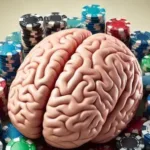
Addictions are complex disorders that affect millions of people around the world. They are defined as physical or psychological dependencies on specific substances, behaviors, or activities that provide immediate gratification, but that in the long term can have negative consequences for the health and well-being of the person. Addictions alter the normal functioning of the brain, affecting areas such as impulse control, decision making, and emotional regulation.
This article aims to explore in detail what an addiction is, how it affects the lives of those who suffer from it, and the possible solutions to overcome it Special attention will be paid to strategies such as mindfulness, thought stopping, emotion management, control of impulsivity and compulsion, as well as the search for new ways to solve problems and find well-being.
What is an addiction?
An addiction can be understood as a chronic illness characterized by physical or psychological dependence to a substance, behavior or activity that produces immediate gratification but that, in the long term, can cause significant harm. Some common examples of addictions are dependence on substances such as alcohol or drugs, pathological gambling, technology addiction, or eating disorders.
Addictions have an overwhelming impact on the lives of those who suffer from them. They can negatively affect physical and mental health, cause financial problems, work and academic difficulties, as well as deteriorate interpersonal relationships. Addictions can also lead to social isolation, loss of self-esteem, and feeling of being trapped in a destructive cycle As the addiction intensifies, the person may experience difficulty meeting daily responsibilities and become involved in high-risk behaviors.
Possible solutions to overcome addictions
Overcoming addiction requires commitment, support, and a combination of effective strategies. Below are some techniques and approaches to addressing addictions:
1. Mindfulness
Mindfulness or full attention is a technique that involves paying deliberate attention to the present moment without judgment By practicing mindfulness, people can become aware of their thoughts, emotions, and physical sensations related to addiction. This mindfulness allows us to observe the triggers and internal signs of addiction without reacting automatically and compulsively.
Example: A person addicted to tobacco can practice mindfulness by observing the physical and emotional sensations associated with the desire to smoke, without succumbing to that immediate impulse. Through mindful observation, you can recognize that the desire to smoke is temporary and that you can choose a healthier response.
2. Stop thinking
Thought stopping is a technique that involves consciously interrupt the automatic and dysfunctional thoughts associated with addiction It consists of recognizing the addictive thought, stopping it and replacing it with a more positive and healthy thought or image.
Example: A person with a gambling addiction can practice thought-stopping by recognizing an impulse to gamble, stopping in his tracks, and visualizing an image that represents the negative consequence of compulsive gambling, such as loss of relationships or financial deterioration.
3. Emotion management
Addictions are often related to the inability to manage emotions in a healthy way. Emotional management involves learn to identify, regulate and appropriately express emotions instead of turning to the addictive substance or behavior as a coping mechanism.
Example: A person addicted to alcohol can learn relaxation techniques, such as deep breathing or meditation, to deal with stress and anxiety without resorting to alcohol consumption as a form of escape.
4. Control of impulsivity and compulsion
Controlling impulsivity and compulsion is essential in recovery from addiction. It involves developing skills to resist automatic impulses and make more conscious and healthy decisions
Example: A person with a shopping addiction can practice impulse control by taking time to reflect before making an impulsive purchase. You may wonder if she really needs the item and what the long-term financial and emotional consequences would be.
5. Strategies to find new ways to solve problems
When a person feels helpless or helpless, it is important explore new ways to solve problems and face life’s challenges This involves seeking support from mutual help groups, setting realistic goals, developing problem-solving skills, and exploring creative or therapeutic activities that provide a sense of accomplishment and satisfaction.
Example: A person addicted to drugs may seek help from a support group such as Narcotics Anonymous and participate in activities such as art, music, or physical exercise to find new avenues of expression and satisfaction.
Conclusion
Addictions are complex disorders that can have a significant impact on the lives of those who suffer from them. However, with the right commitment and the implementation of effective strategies, it is possible to overcome them and find the path to recovery and well-being. Mindfulness, stopping thinking, managing emotions, controlling impulsivity and compulsion, as well as finding new ways to solve problems, are valuable tools in this process. Each person is unique, so it is important to seek professional help and have a strong support system in place to provide the support needed on the road to recovery.








